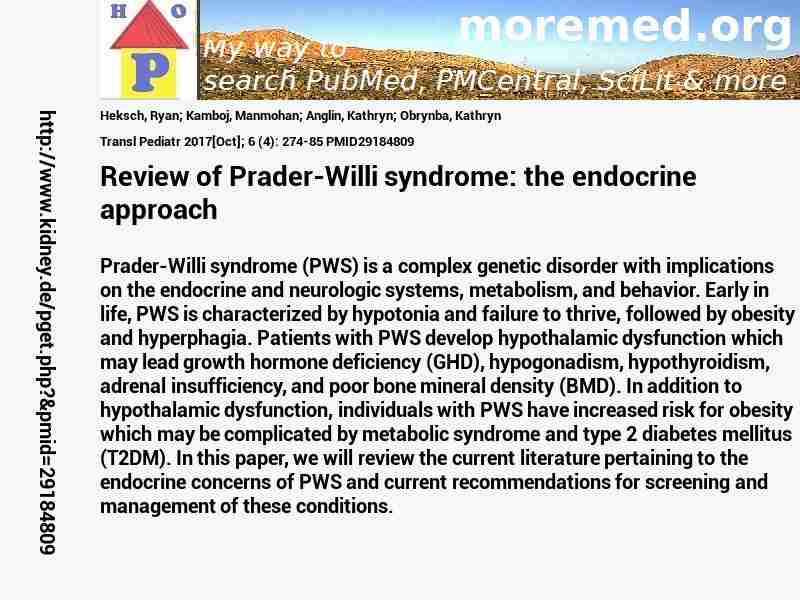
|
10.21037/tp.2017.09.04
http://scihub22266oqcxt.onion/10.21037/tp.2017.09.04

C5682385!5682385!29184809
 free free
 free free
 free free
Warning: file_get_contents(https://eutils.ncbi.nlm.nih.gov/entrez/eutils/elink.fcgi?dbfrom=pubmed&id=29184809&cmd=llinks): Failed to open stream: HTTP request failed! HTTP/1.1 429 Too Many Requests
in C:\Inetpub\vhosts\kidney.de\httpdocs\pget.php on line 215
|  
Deprecated: Implicit conversion from float 219.6 to int loses precision in C:\Inetpub\vhosts\kidney.de\httpdocs\pget.php on line 534
Warning: imagejpeg(C:\Inetpub\vhosts\kidney.de\httpdocs\phplern\29184809.jpg): Failed to open stream: No such file or directory in C:\Inetpub\vhosts\kidney.de\httpdocs\pget.php on line 117
 Transl+Pediatr 2017 ; 6 (4): 274-85 Transl+Pediatr 2017 ; 6 (4): 274-85
Nephropedia Template TP
gab.com Text
Twit Text FOAVip
Twit Text #
English Wikipedia
|
Review of Prader-Willi syndrome: the endocrine approach #MMPMID29184809Heksch R; Kamboj M; Anglin K; Obrynba KTransl Pediatr 2017[Oct]; 6 (4): 274-85 PMID29184809show ga
Prader-Willi syndrome (PWS) is a complex genetic disorder with implications on the endocrine and neurologic systems, metabolism, and behavior. Early in life, PWS is characterized by hypotonia and failure to thrive, followed by obesity and hyperphagia. Patients with PWS develop hypothalamic dysfunction which may lead growth hormone deficiency (GHD), hypogonadism, hypothyroidism, adrenal insufficiency, and poor bone mineral density (BMD). In addition to hypothalamic dysfunction, individuals with PWS have increased risk for obesity which may be complicated by metabolic syndrome and type 2 diabetes mellitus (T2DM). In this paper, we will review the current literature pertaining to the endocrine concerns of PWS and current recommendations for screening and management of these conditions.�
  
DeepDyve
Pubget Overpricing | 
|